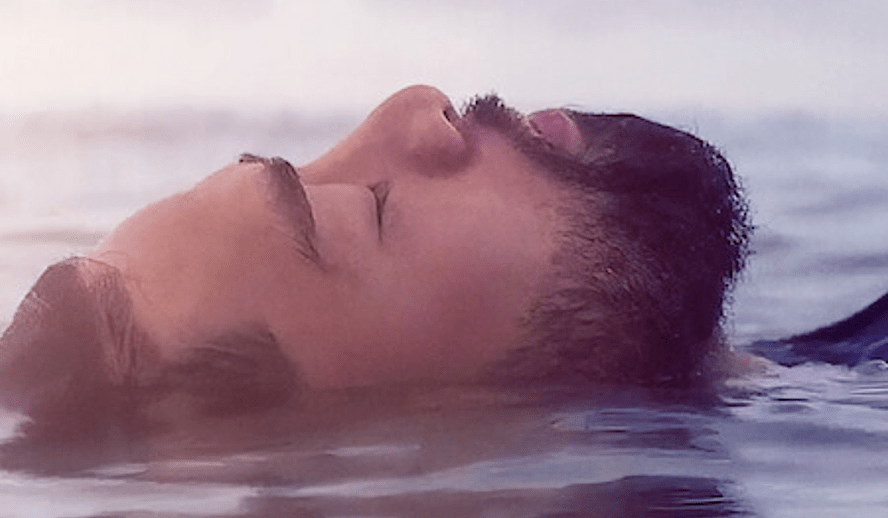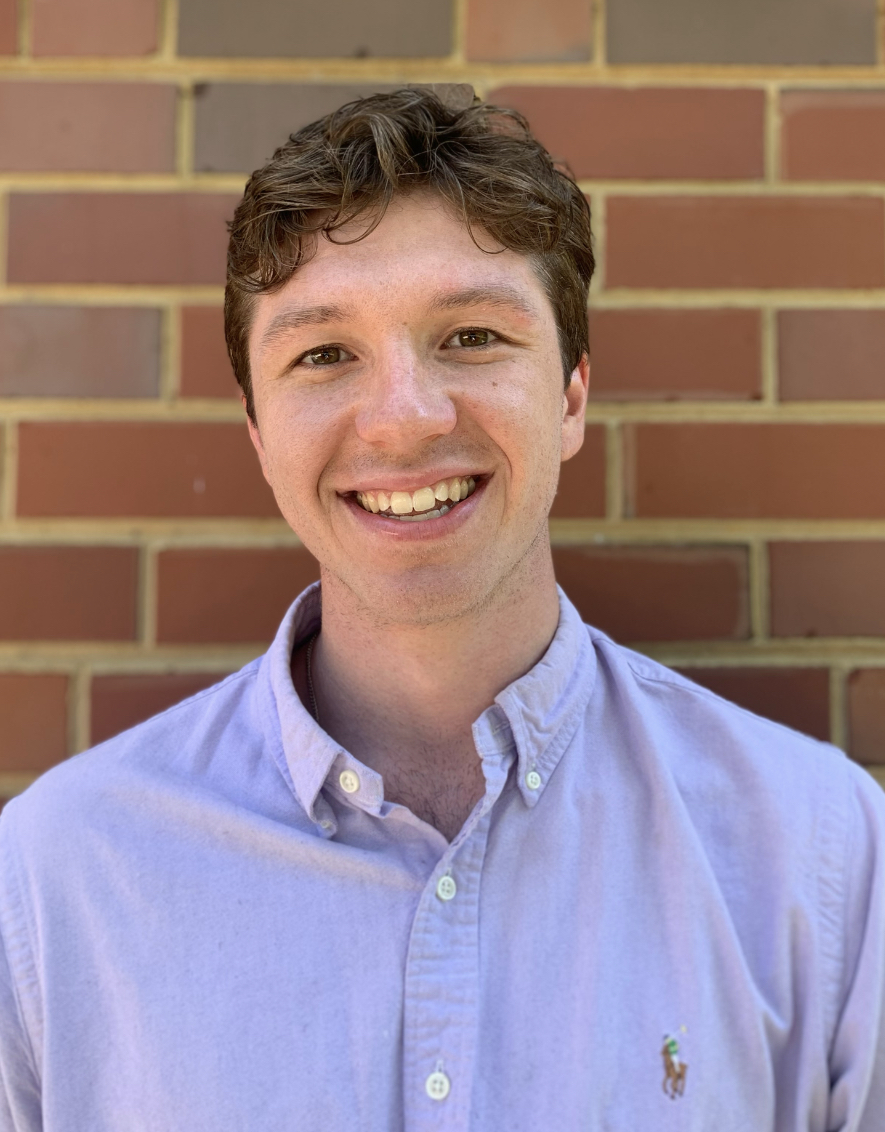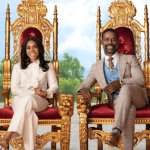Table of Contents

Photo: ‘Untold: The Girlfriend Who Didn’t Exist’
Manti Te’o the Person
Manti Te’o is older now.
He sits in a dimly lit room, and outside, it’s something of a rainy evening. At 31 years old, he’s finally grown into himself, angular and chiseled. It’s a far cry from Te’o’s once rather baby-faced likeness, which had been plastered on every tabloid and television in the nation a decade ago. He’s a man now — with a wife, a daughter, and another child on the way. Looking at him, you see the poise of someone tried by adversity. And he looks like he could still play football too, as his linebacker’s build reminds you. He is, after all, an active NFL free agent, having been a member of the Chicago Bears as late as 2021. And no doubt teams will explore signing Te’o for the ratings bump now that his name is freshly in the news cycle once again.
Related article: The Hollywood Insider’s CEO Pritan Ambroase: “The Importance of Venice Film Festival as the Protector of Cinema”
Related article: The Masters of Cinema Archives: The Hollywood Insider Pays Tribute to ‘La Vie En Rose’, Exclusive Interview with Director Olivier Dahan
Related article: – Want GUARANTEED SUCCESS? Remove these ten words from your vocabulary| Transform your life INSTANTLY
The centerpiece of the new two-part documentary ‘Untold: The Girlfriend Who Didn’t Exist’, Te’o reopens what is undoubtedly his most public wound. In another interview, Te’o has said that a Jay-Z lyric “you cannot heal what you don’t reveal” inspired him to tell his story to Netflix. If that’s the case, then Te’o is certainly hoping to heal a lot.
In his interviews, he looks calm yet guarded, and understandably so. He’s endured far more public scrutiny than the average Heisman candidate and NFL player. (Coincidentally, the only person who competes in that category is the man who actually won the Heisman the same year, Johnny Manziel.) In agreeing to the documentary, Te’o is taking a risk few know better than him.
It begins with a shot of Te’o in his college days, thick-necked and wide-eyed, dressed in the hopeful green of a Notre Dame polo. It’s probably 10-year-old footage for a school promotional or something like it, which was no doubt a routine part of Te’o’s life then. When the videographer tells Te’o “to just look in the camera when you answer” he instantly fixes his gaze right on you, the viewer. He looks intimidated by the attention, but he isn’t one to disobey an order. He never was.
Related video: Come Behind The Scenes of ‘Elvis’ | Austin Butler, Tom Hanks and Baz Luhrmann
He first came into the public eye his freshman year at Notre Dame, a highly touted recruit and a feel-good fish out of water story. Hailing from Hawaiian football lineage, he was the first in his family, his culture, to venture outside the West Coast football programs like USC, where the Polynesian legacy was strong. Te’o was and still is a deeply committed Mormon, and it was a priest at his high school who provided what he saw as the divine providence to become the “first Manti Te’o” with the Fighting Irish. Throughout the documentary, you hear him refer to his faith constantly, citing the “three pillars of Polynesian culture: faith, family, football.” Te’o did all three exceptionally well, explaining that “discipline is a huge thing in Polynesian culture, which is a huge thing in Christian belief, which is a huge thing in sports.” He also emphasizes frequently the importance of service to others and his community. Covering his time at Notre Dame, the documentary shows what is likely the only available footage of Te’o in those years: Te’o volunteering; Te’o studying; Te’o playing football. That’s all there was to him. From his earliest days, Manti insisted on doing things by the book, whether that was the playbook or the Book of Mormon. “He was an incredibly obedient young man,” says his father from their family house in Laie. “I mean, the only words that would come out of his mouth [were] ‘Yes, Dad’ or ‘Yes, Mom.’”
Related article: MUST WATCH – The Hollywood Insider’s CEO Pritan Ambroase’s Love Letter to Black Lives Matter – VIDEO
Te’o the Story
Te’o is a rare media figure in how quickly and neatly his narrative arc was resolved. Overnight, Te’o went from media darling to villain. Other than that, his story is fairly emblematic of how our media ecosystem operates. His senior year of college, Te’o had been elevated to fame, not just as the best defensive player in the 2013 NFL draft, but as a promising leader of young men. Then his grandmother and girlfriend died just six hours apart from one another, and he was catapulted into the stratosphere. He publicly dedicated his season to his lost loved ones, having promised Lennay, his girlfriend, to play for her. He was willing to talk to outlets about his tragedy, being bravely vulnerable on a camera he wasn’t comfortable with. Now a national hero, he became not known not just to football fans but to everyone: news pundits, Congressmen, even your cousin who never followed sports knew his name. For months, he was publicly adored by all, including the begrudging fans of rival programs. “One problem,” says Timothy Burke, one of the Deadspin writers who broke the story, in the opening montage of the documentary. “His girlfriend did not exist.”
Ultimately, it’s Te’o’s strict obedience that rendered him naive enough to believe the ruse he fell for. Maclain and Chapman Way, the creators of the series, do an excellent job of giving you a deep sense for who Te’o is. Despite checking with several mutual friends to confirm Lennay’s existence, he never wanted to press her to prove her identity. Catfishing was hardly a concept at that time, and Te’o, to his detriment, was a trusting person who enjoyed having someone to confide in. The directors juxtapose that sentiment he’s changed The first glimpse of 31-year-old Te’o in the documentary shows him with a thousand-yard stare out of frame, no longer the boy obediently staring down the camera in that Notre Dame locker room. We’ve just watched a montage of the media coverage of the hoax. “If this guy is in on this, he is a sick human being… he let this go on and on,” someone says over intense music. A shot follows of Te’o submerged in the Pacific ocean.
- Subscribe to The Hollywood Insider’s YouTube Channel, by clicking here.
- Limited Time Offer – FREE Subscription to The Hollywood Insider
- Click here to read more on The Hollywood Insider’s vision, values and mission statement here – Media has the responsibility to better our world – The Hollywood Insider fully focuses on substance and meaningful entertainment, against gossip and scandal, by combining entertainment, education, and philanthropy.
“Feeling good?” asks the documentarian. A big sigh escapes from Te’o, and what he says betrays what is obviously reality, “Yeah.” He doesn’t look intimidated anymore. Just weary.
In an ideal world, the documentary ends there. It’d be a nice encapsulation of Te’o who, despite the vitriol and deceit he was subjected to, is still trying to help people. Having lost his naivete but gained perspective and resolve. But the documentary can’t end there, because the story of Manti Te’o is not about him, the person or even the football player. It is a story about the ruthlessness and moral decay of our media culture.
Te’o the Villain?
Despite the prevalence of Ronaiah Tuiasosopo, who perpetrated the catfishing and who now identifies as a trans-woman “Naya”, she is not the real antagonist in the story. The documentarians are laissez-faire when it comes to explicit opinions about what she did. If anything, there’s an implication that her actions have ultimately aided in her journey of self-discovery, which is shined upon in a closing montage. Of course, it’s impossible to watch this and not see her as a manipulative sociopath who took advantage of a well-meaning person. There are moments, like her ‘Dr. Phil’ interview, that exhibit unhinged behavior that borders hilarity. The documentary does well, too, in explaining the breadth of her scheme, the convincingness of the voicemails, and how she manages to procure a photo of “Lennay” with a list of demands made by Te’o. Yet, somehow she does not emerge as Te’o’s most significant tormentor, because when asked if he forgives her, Te’o says he does. The trouble, he admits, is in forgiving himself.
Related video: EVOLUTION: Every Tom Cruise Role From 1981 to 2021, All Performances Exceptionally Poignant
Related article: A Tribute to Johnny Depp: The Actor and Musician Who Defined Range
Related video: EVOLUTION: Every Johnny Depp Role From 1984 to 2020, All Performances Exceptionally Poignant
Related article: A Tribute to the Hero & President Volodymyr Zelenskyy: Comedian/Actor, Ukraine’s President and Heroic Leader
Te’o has been exploited, castigated, mocked, accused, and shamed, and that’s just by some of the most respected faces in the news media (the memes were bad, but at least light-hearted). And their tone whether it was local news, CNN, FOX, or David Letterman, was always one of betrayal. “It just seems odd to me that he would tell this story… but never mention that he had never met her,” says Anderson Cooper. “‘I think he’s gay and he’s covering it up,’” quotes Don Lemon on his own show. “You gotta be awfully dumb to think this won’t blow up in your face,” says Bob Costas. Bob Costas.
Outraged, the media demanded answers for their own folly, resulting in some excruciating interviews with a deer-in-headlights Te’o. The documentary features them all, including his primetime interview with Katie Couric, who asked him — the same camera-shy kid in the green polo — point blank “are you gay?” This was 2012 — that was a big deal. Especially for a Mormon football player.
Right after, he recalls reading an article entitled “The Most Hated Athletes in the World,” that listed Tiger Woods, Lance Armstrong, and himself. Through tears, Te’o says “I was like ‘What am I doing on that list?’”
Related article: EVOLUTION: Every Henry Cavill Role From 2001 to 2021, All Performances Exceptionally Poignant
Related article: EVOLUTION: Every Chris Evans Role From 1997 to 2020, All Performances Exceptionally Poignant
The painful truth was that it suited the current ratings trend, amidst the public downfalls of Tiger Woods and Lance Armstrong. As Notre Dame’s former AD points out, “there was this notion of fallen heroes going on… Lance fed into Manti in that regard.” It’s no wonder Te’o is only now beginning to reckon with his self-perception. Growing up, he staked his identity on being a good person who cared for others and followed the rules. Everyone had praised him for it. Then, for no crime other than his own innocence, he was universally branded a lying scumbag.
The documentary itself is predicated on an erroneous dilemma. How much blame belongs to Te’o for his role in the “hoax?” It’s the same question the media so frantically explored after the news broke, blaming anyone but themselves for their own coverage of the kid. Whether intended or not, the documentary highlights the media’s reactionary ethos, and its obliviousness to its own entertainment model. Their sensationalist narratives created both the larger-than-life hero they painted Te’o as, and the villain of the same proportions. When it turned out that he was in fact a human being, the media — with a single, unified voice — vilified him, while taking none of the responsibility for creating the maelstrom. When it seemed Te’o actually was not complicit in the hoax, they discarded him, and moved hungrily onto Ronaiah without a second thought for the damage left in their wake.
Related article: #metoo Revolution: Powerful Questions That Need Answers
Related article: FACT-CHECKED Series: Timothee Chalamet and 32 Facts about The Young Superstar
The Manti Te’o story is one of an innocent person caught in the crosshairs of media sensationalism. For networks, it spurred another few weeks of ratings. For Manti, it cost millions of dollars in deferred draft money, an anxiety disorder, and a lifetime of shame. The documentary does well to parse between Te’o the person and the media’s eternal chase for a boogeyman. Because ultimately, the story of Manti Te’o the human being is one of faith. Though Te’o’s faith got him into the nightmare his life became, it also saw him through it to the other side. And we should thank his God that something could.
In his final words, Te’o reminds you that despite everything, he’s still a man of service. “I’ll take all this crap. I’ll take all the jokes. I’ll take all the memes, so that I can be an inspiration to one who needs me to be.” Then, red eyed, choked up, he steels himself and looks into the camera that once so intimidated him. “That’s the whole reason why I’m doing this.”
CAST and CREW:
Cast: Manti Te’o, Ronaiah Tuiasosopo, Otillia Te’o, Brian Te’o, Dr. Phil
Dir: Maclain Way, Chapman Way
Executive Producers: Maclain Way, Chapman Way
Associate Producer: Rachel Greenwald
By Patrick Lynott
Click here to read The Hollywood Insider’s CEO Pritan Ambroase’s love letter to Cinema, TV and Media. An excerpt from the love letter: The Hollywood Insider’s CEO/editor-in-chief Pritan Ambroase affirms, “We have the space and time for all your stories, no matter who/what/where you are. Media/Cinema/TV have a responsibility to better the world and The Hollywood Insider will continue to do so. Talent, diversity and authenticity matter in Cinema/TV, media and storytelling. In fact, I reckon that we should announce “talent-diversity-authenticity-storytelling-Cinema-Oscars-Academy-Awards” as synonyms of each other. We show respect to talent and stories regardless of their skin color, race, gender, sexuality, religion, nationality, etc., thus allowing authenticity into this system just by something as simple as accepting and showing respect to the human species’ factual diversity. We become greater just by respecting and appreciating talent in all its shapes, sizes, and forms. Award winners, which includes nominees, must be chosen on the greatness of their talent ALONE.
I am sure I am speaking for a multitude of Cinema lovers all over the world when I speak of the following sentiments that this medium of art has blessed me with. Cinema taught me about our world, at times in English and at times through the beautiful one-inch bar of subtitles. I learned from the stories in the global movies that we are all alike across all borders. Remember that one of the best symbols of many great civilizations and their prosperity has been the art they have left behind. This art can be in the form of paintings, sculptures, architecture, writings, inventions, etc. For our modern society, Cinema happens to be one of them. Cinema is more than just a form of entertainment, it is an integral part of society. I love the world uniting, be it for Cinema, TV, media, art, fashion, sport, etc. Please keep this going full speed.”
More Interesting Stories From The Hollywood Insider
– Want GUARANTEED SUCCESS? Remove these ten words from your vocabulary| Transform your life INSTANTLY
– A Tribute to Martin Scorsese: A Complete Analysis of the Life and Career of the Man Who Lives and Breathes Cinema
– Do you know the hidden messages in ‘Call Me By Your Name’? Find out behind the scenes facts in the full commentary and In-depth analysis of the cinematic masterpiece
– A Tribute To The Academy Awards: All Best Actor/Actress Speeches From The Beginning Of Oscars 1929-2019 | From Rami Malek, Leonardo DiCaprio To Denzel Washington, Halle Berry & Beyond | From Olivia Colman, Meryl Streep To Bette Davis & Beyond
– In the 32nd Year Of His Career, Keanu Reeves’ Face Continues To Reign After Launching Movies Earning Over $4.3 Billion In Total – “John Wick”, “Toy Story 4”, “Matrix”, And Many More
manti te’o, manti te’o, manti te’o, manti te’o, manti te’o, manti te’o, manti te’o, manti te’o, manti te’o, manti te’o, manti te’o, manti te’o, manti te’o, manti te’o, manti te’o, manti te’o, manti te’o, manti te’o, manti te’o, manti te’o, manti te’o

Patrick Lynott is a writer and screenwriter. He cares about Cinema. He cares about meaningful stories. And he cares about preserving and elevating things that people work long and hard on.Despite the incessant barrage of “content” vying for his (and everyone’s) attention, he believes it’s never been more important to pedestalize labors of real art across from a spectrum of voices. The Hollywood Insider is one of the few networks committed to doing this through substantive coverage of quality entertainment. The future of good Cinema and healthy culture relies on outlets and people willing to champion those values. Here’s to that future.








